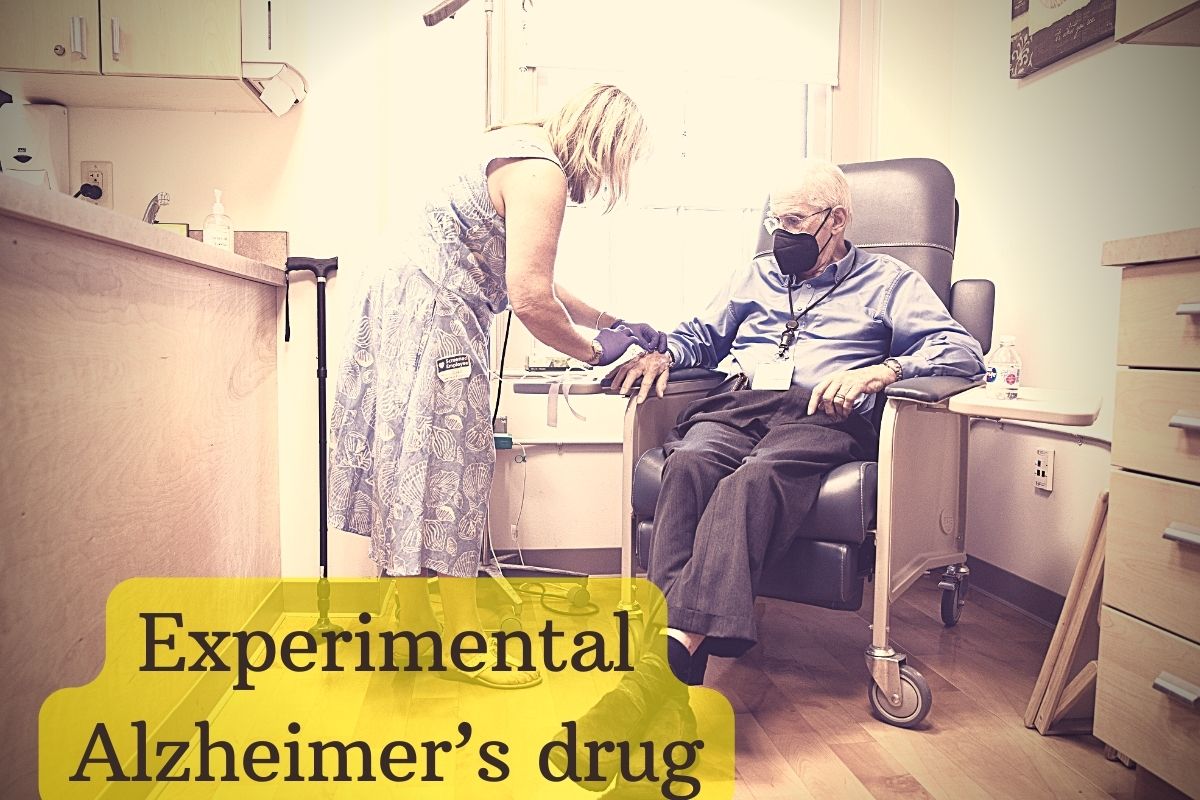[web_stories title="false" excerpt="false" author="false" date="false" archive_link="true" archive_link_label="" circle_size="150" sharp_corners="false" image_alignment="left" number_of_columns="1" number_of_stories="5" order="DESC" orderby="post_title" view="circles" /]
Experimental Alzheimer Drug, Reportedly Contributed to Research Participant’s Death
Experimental Alzheimer Drug: The digital health newspaper Stat got an adverse event to report that suggests a Phase 3 trial’s monoclonal antibody therapy for Alzheimer’s disease may have led to a research participant’s death.
The Subjects of the Coverage Are Those Who Have Died
According to an adverse events report published by the digital health newspaper Stat, a Phase 3 trial participant’s death may have been related to a monoclonal antibody therapy for Alzheimer’s disease. In a statement released to CNN on Friday, Eisai, the manufacturer of the experimental medicine lecanemab, stated that it was unable to comment on or offer particular information about patients due to privacy concerns.
A researcher working on the project reportedly informed Eisai about the death, which was caused by cerebral hemorrhage, according to Stat. The investigation found that the medicine was to blame for the bleeding, but the pharmaceutical firm offered alternative explanations.
According to Stat, the business said lecanemab “may have contributed to the” bleeding. Stat suggests that the participant’s “many falls, a heart attack, a respiratory illness, and mini-stroke-like episodes” may have contributed to the outcome. The adverse events report Stat claims to have studied also revealed that the participant in the issue was taking blood thinners to treat a cardiac ailment. According to Stat, police are still looking into the fatality.
Eisai noted in a statement that “STAT News was right in general in how difficult it may be to pinpoint the precise cause of death in any individual patient,” which is especially true for the elderly and those with many medical problems. The corporation claims to have an independent data safety monitoring committee made up of outside specialists and to have swiftly conveyed safety information to investigators, regulators, and participants to ensure everyone’s well-being.
The number of deaths in Phase 2 of the experiment for individuals who received the medicine “was no more common” than in those who received a placebo, the firm stated. The statement emphasizes Eisai’s commitment to the safety of study participants. Read also: Parents Suing Over Their Son’s Death Claim He Left Behind a to-do List That Included “Stop Consuming Kratom”
The incoming president of the Society for Clinical Trials, Dixie Ecklund, conceded that fatalities sometimes occur during drug testing but said that trials are still important “because, with scientific rigor, you can design trials correctly and find answers and subsequently make a difference in our society.” Ecklund isn’t connected to Eisai in any way, and he wasn’t a part of the trials.

To ensure “scientific rigor,” she emphasizes the need for an independent data safety monitoring board in this experiment. According to the author, “the clinical trial industry in the United States has many built-in checks and balances between the Food and Drug Administration and the National Institutes of Health, peer review, and all those things can lead to the ability of an individual to make a responsible assessment.”
Preliminary findings from the research were released by Eisai in September, showing that the medication significantly delayed the course of cognitive deterioration by 27% compared to a placebo. Read also: Grand Jury Fails to Convict Mount Carmel St. Ann’s Cops
Positive impacts on cognition and everyday functioning were seen as compared to a placebo, and amyloid levels were lowered, making this treatment effective in meeting all secondary goals. A statement made by the firm at the time stated that the findings “support the amyloid hypothesis, in which the aberrant buildup of [amyloid beta] in the brain is one of the key causes of Alzheimer’s disease.”
The experiment was significant, but this is not proof per se, Dr. Richard Isaacson told CNN in September. At the Schmidt College of Medicine at Florida Atlantic University, Isaacson oversees the Alzheimer’s Prevention Clinic. Reducing amyloid in the brain has not always been linked to cognitive or clinical improvement in the past. All of the study’s objectives were met successfully. Never before has something like that occurred. Read also: Jerry Lee Lewis, 87 Years Old, the Crazy Rock Star Has Passed Away
Preliminary data revealed that approximately 3% of drug-treated study participants had brain swelling (termed ARIA-E), while no one receiving a placebo experienced this adverse effect. Brain hemorrhage and tissue iron accumulation, symptoms of ARIA-H, occurred in 0.7% of the medication group and 0.2% of the placebo group.
Late this November, at the Clinical Studies on Alzheimer’s Disease conference, Eisai will announce the outcomes of the medication trials.
By the end of March, Eisai and its partner, Biogen, hope to have published their findings in a scholarly publication and submitted their application to the appropriate US authorities for approval. Read also: UWEC Police Investigation, a Fatal Accident That Occurred Near the Campus
If you sign up for updates at unitedfact.com, you’ll get them as soon as they’re posted. You may want to sign up for our updates if you appreciate reading stories like the one you’re currently viewing.

